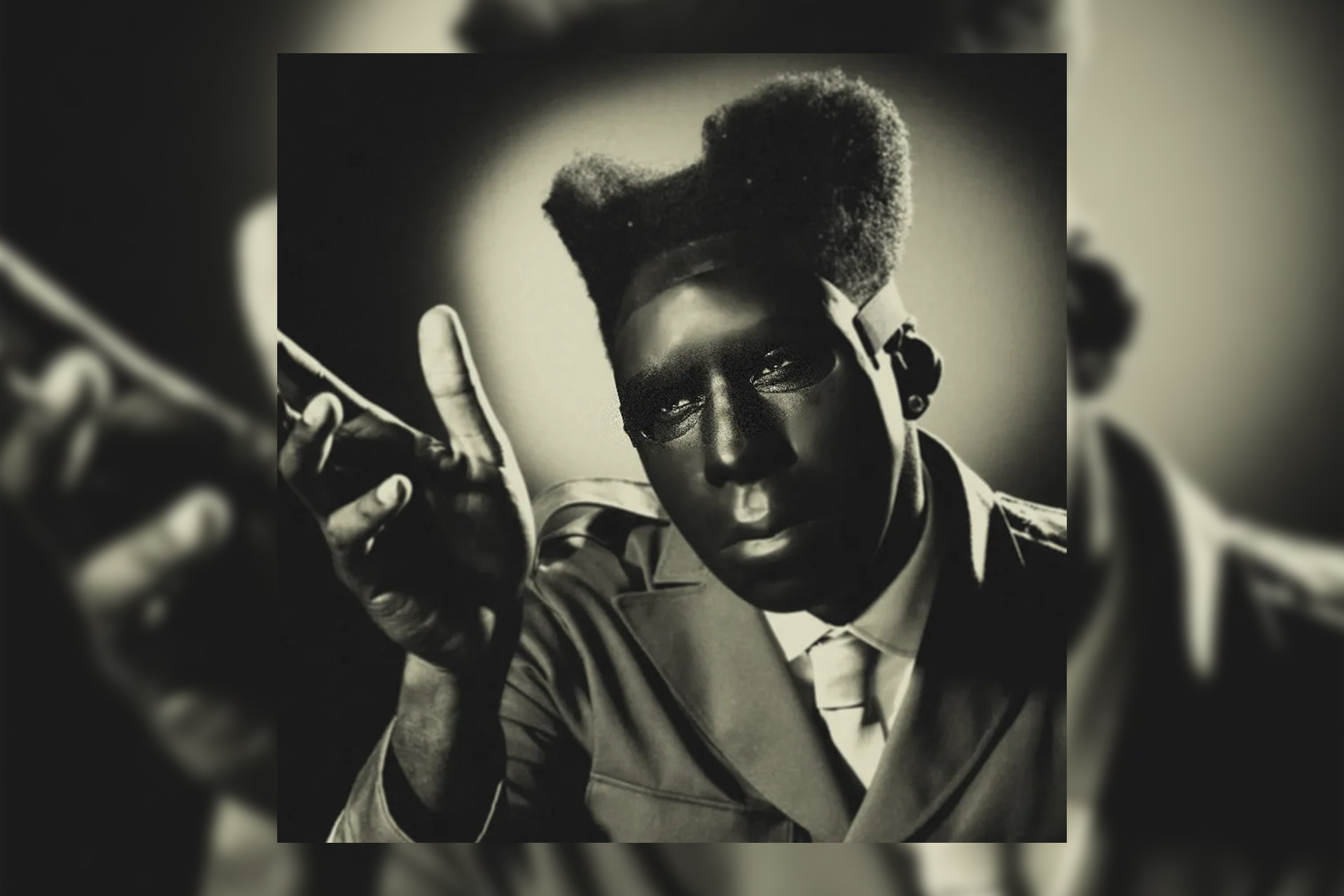Scratchy whispers stain the opening track of Tyler, The Creator’s Chromakopia. The album title is chanted throughout the first minute, layered over a beat stomping with intensity and the unmistakable grainy edge of Tyler’s voice.
The artist released his seventh studio album on Monday after announcing it only a few weeks earlier.
Chromakopia is more than just a widely-anticipated album. It’s a story, a diary that pieces together Tyler’s healing on a timeline separated by tracks, minutes and wild features. With inspirational pro-Black anthems like “Take Your Mask Off,” Tyler is using his platform to scream for rights and culture freedoms.
The record’s opening track, “St. Chroma,” goes beyond the short snippet that went viral before the album’s release.
It’s unclear if voices besides Daniel Caesar’s are layered beneath the song’s juxtaposing stomping and angelic chorus, but I won’t call fans crazy for speculating about features from off-the-grid artists such as Frank Ocean.
Several adlibs are distinctly reminiscent of artists rumored to be on the project. I double-checked the credits at the end of the track “Darling, I” to see if Pharrell Williams or Timbaland had a hand in creating the R&B song, only to find that Tyler produced it himself.
[5 podcasts every college student should tune into]
While almost every Tyler album includes a shameless romantic ballad, this one comes as a happy surprise. The contrast between the intense lyrical intro — “Whatever you do, don’t ever tell no bitch you love her / If you don’t mean it, don’t tell it” — and the sappy, but annoyingly catchy 2000s beat is striking.
The date-night-ready track explores monogamy, love and the idea that while romance may be fleeting, music is not. The unconventional love song is sandwiched between advice from Tyler’s mother, Bonita Smith, a verse from Teezo Touchdown and a finale featuring his mother again.
“Rah Tah Tah” is exactly as it reads — a rah tah tah attack on anyone who hangs up the phone on Tyler, who insists he’ll call right back.
The coolest and most deserving of the “banger” title on the album features disconnected lyrics that somehow come together perfectly. Dressed as a potential diss track but forced to be a classic, this hit marks itself as potentially generational. Much like its unconfirmed predecessor, “THE BROWN STAINS OF DARKEESE LATIFAH PART 6-12 (Remix)” it features a crystalizing, almost identical synth backdrop.
“Rah Tah Tah” cannot be discussed without an honorary mention of the seamless transition to the next chronological track, “Noid.” On the album’s first single, Tyler’s repetitive verse of paranoia shifts seamlessly into a synth-driven chorus arranged with “paranoid, paranoid, paranoid” — the intro of track three.
The transition makes “Noid” much better than it is on its face. Its early release didn’t work in its favor and quickly became an instant skip — even faster than it made its way onto my playlist.
The back-and-forth “Ooo”s place the listener in a state of paranoia about what’s coming next, the same feeling Tyler raps about for nearly five minutes.
“Sticky” is jam-packed with legendary features, including Sexyy Red, GloRilla and Lil Wayne, who are placed over a stomping krump beat paired with a chanting flow. You’d expect Tyler to let each artist shine in their style when placing multiple on one chaotic track, but he integrates them into his unique style. While it’s hard to get past the offbeat whistle that permeates the already disruptive chant, this track sticks beyond the first-day hate.
Among a lineup of bangers, “Hey Jane” sets a more solemn tone as Tyler raps about the struggles of an unplanned pregnancy. The title, a callout to a healthcare company that provides abortion-related services by the same name, resonates with many listeners in a post-Roe world.
“Always, always, always wear a condom,” the continuous guiding voice of his mom sternly reminds us as the track opens up to a condensed, less chaotic rhythm than any other on the album.
[The Travis Kelce phenomenon that’s hard to ignore]
The lyrics are more pronounced, punchy and engraved with far more meaning than any beat could provide. Tyler raps about respecting his partner’s wishes while feeling scared about telling his mother and other women.
The raw emotion, disguised by his confident voice, is confusing and beautiful.
But not every track can earn the title of banger. A few songs, such as “Balloon” and “Tomorrow,” fall short of these accolades. While they serve as decent fillers with lyrics slapped onto typical Tyler sounds and beats, they lack anything more meaningful.
Drawing from styles of his previous works, including Cherry Bomb and Igor, Tyler delivers a 14-track album that not only revives the cultural drought in the current music scene, but also introduces his fans to a new persona — a culmination of every album that preceded Chromakopia.



